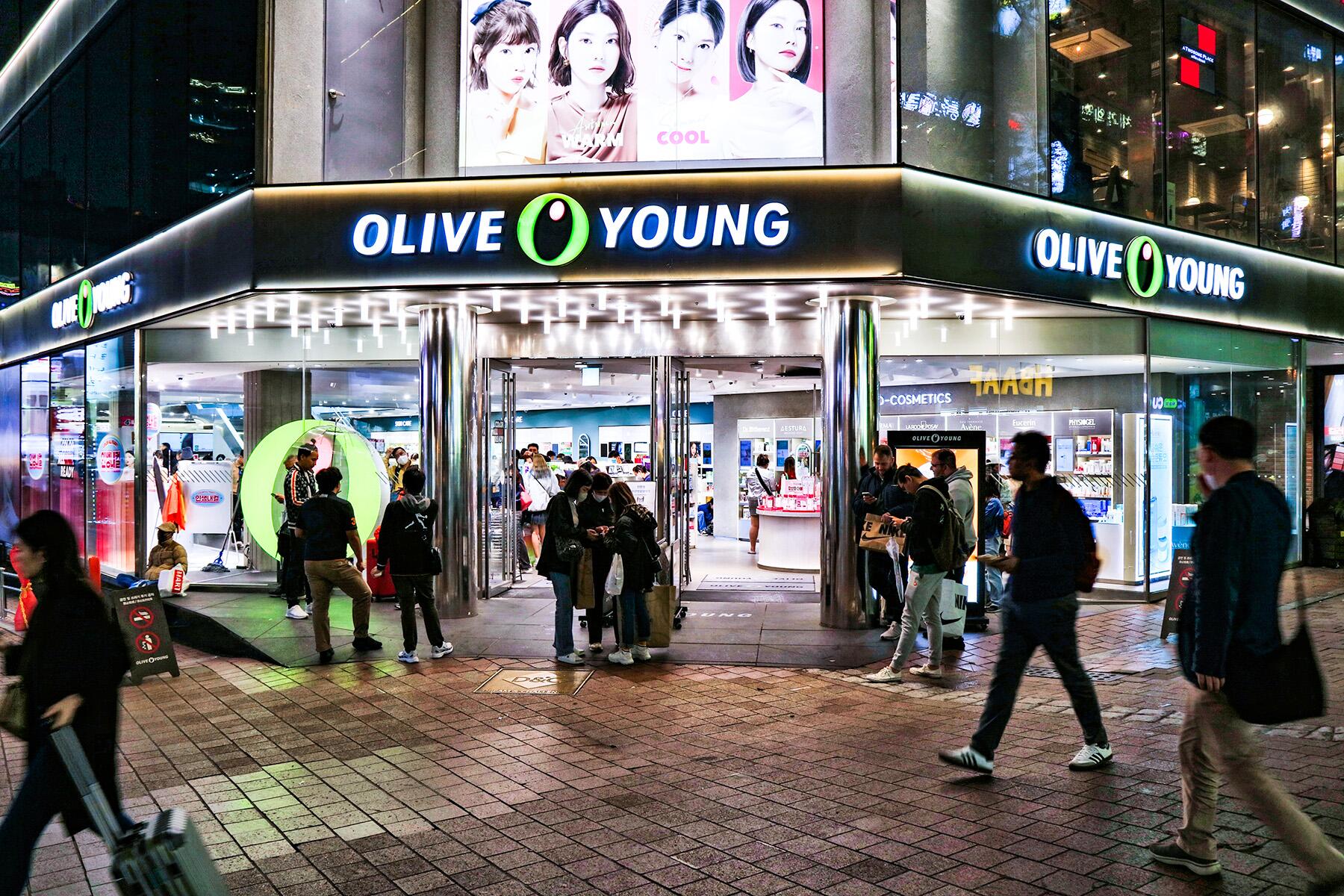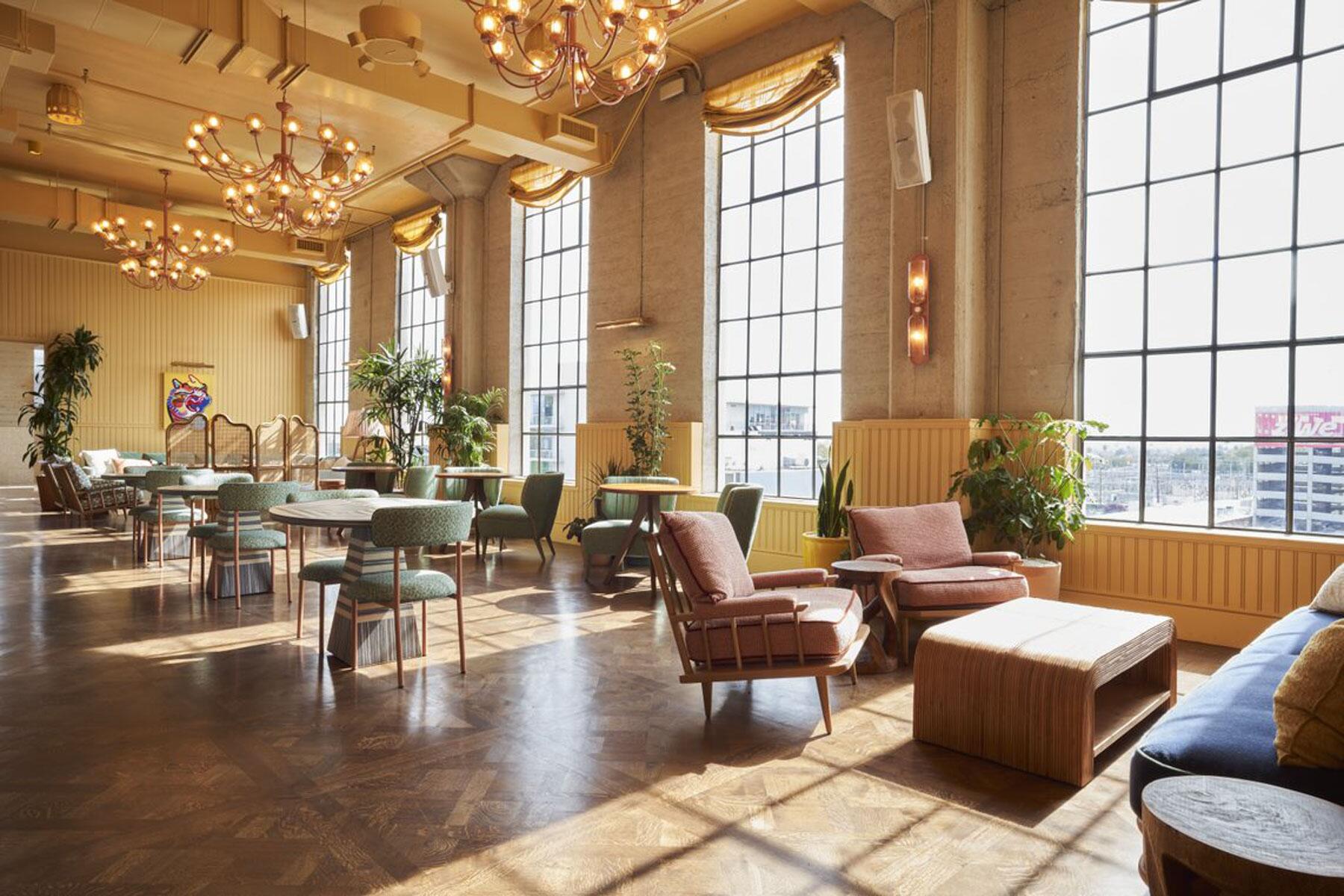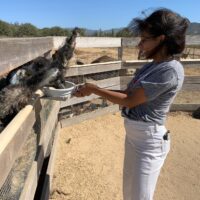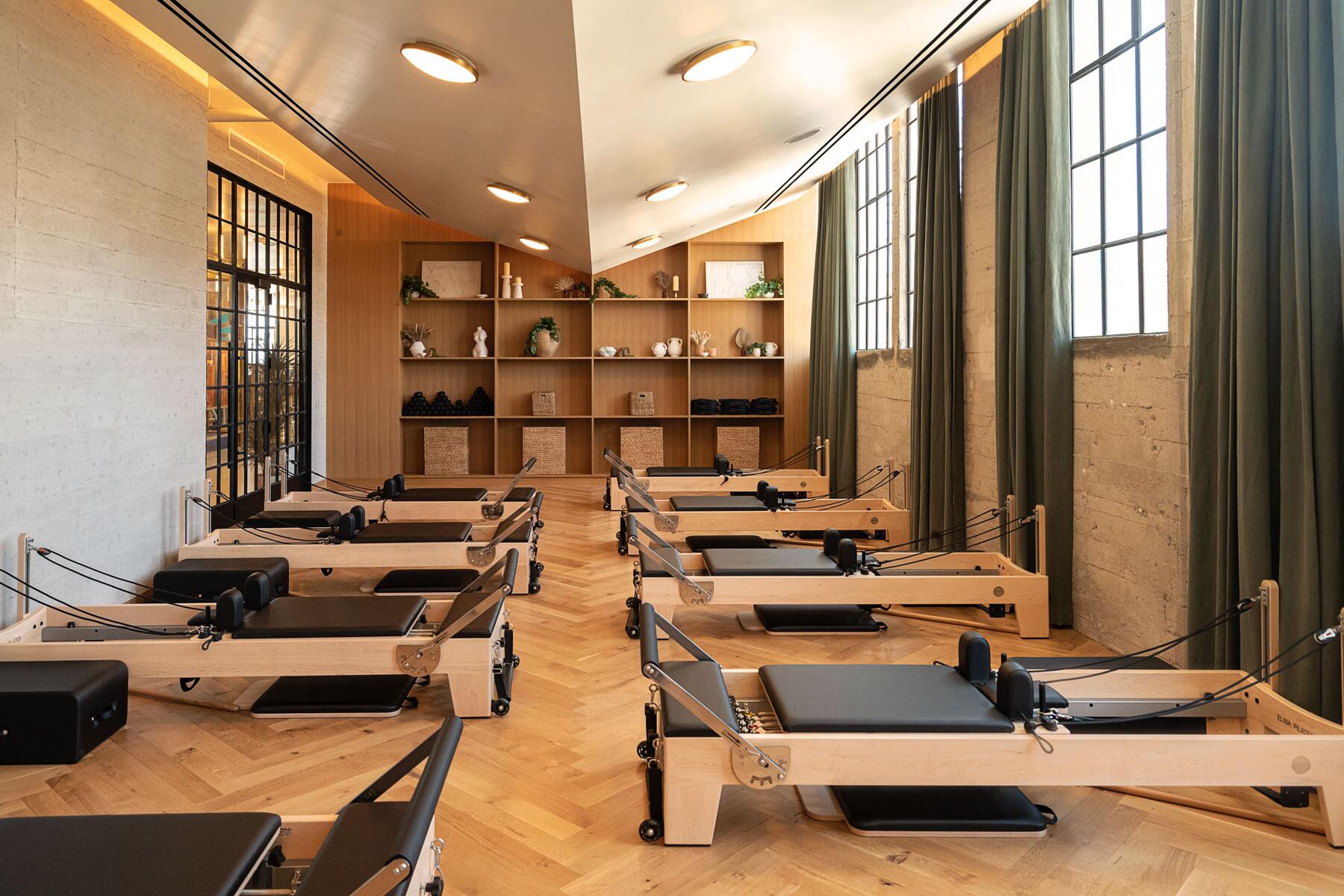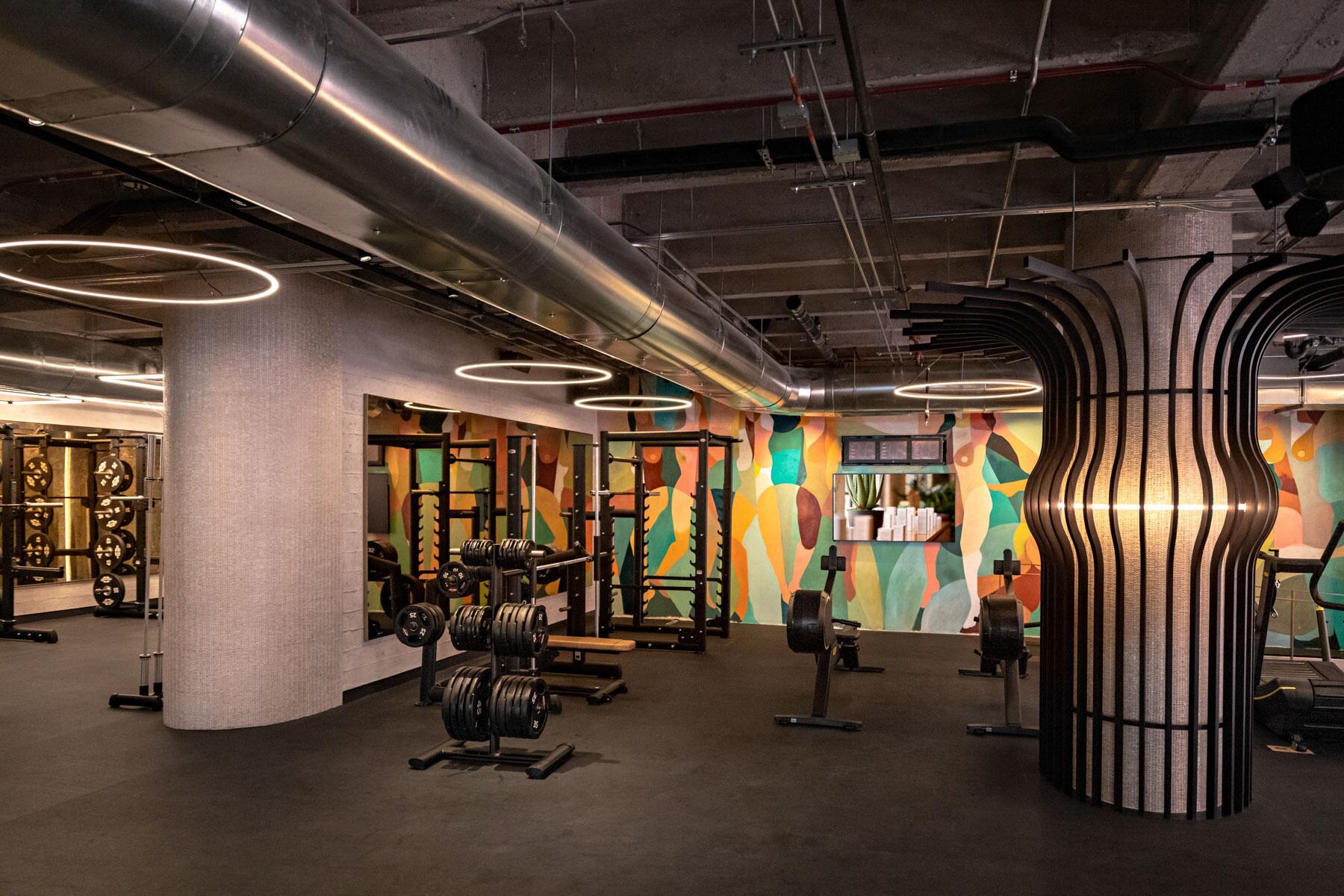How Heimat, a new multi-hyphenate members-only club in Los Angeles, meets us at our current moment, solving the predicament of the third place.
In the book of essays Trick Mirror, Jia Tolentino writes about the uniquely American concept of self-optimization, or the cultural phenomenon of applying internet performance goals of “network optimization” to one’s own life: increased productivity, effectiveness, efficiency. One essay, called “Always Be Optimizing” presents a larger commentary on the obsession with maximizing productivity by making life “simpler.” Want a nutritious meal? Here’s your fast casual bowl of grains ‘n greens. Want a lean, svelt body? Pop into a barre class and get toned at warp speed. The message? Americans have perfected productivity, and are constantly on the lookout for ways to further hone their life optimization skills.
I’ve noticed this, especially in my adopted hometown, Los Angeles—already a hub for all things optimized and enhanced.
Recommended Fodor’s Video
I first heard about Heimat (a German word that roughly translates to the warm, inviting space that one calls home) through a friend and immediately balked at the idea. This is the pitch from RSG Group (a global conglomerate that owns Heimat and recently acquired Gold’s Gym): Imagine a space where you could work, socialize, network, squeeze in a workout, and lounge poolside, all in the same day? Obviously, this 75,000-square-foot space would be thoughtfully designed down to the very last details (see: Dyson hair dryers in the locker rooms, bespoke equipment, forged metal and marble accents) plus gorgeous art from modern talents like Abel Macias, Jessalyn Brooks, and Sophia Dherbecourt. It’s all topped off with a sprawling and vibrant Michael Mina restaurant on the top floor, Mother Tongue. Non-members are welcome–members get 10% off their bills.
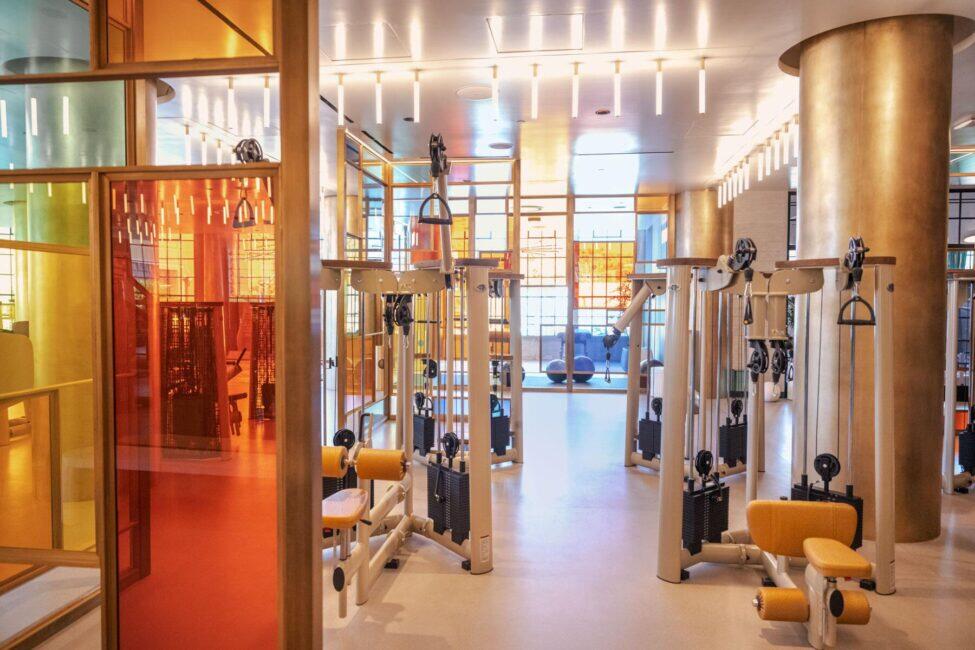
But it felt faddish and gimmicky: “A coworking-space-slash-restaurant-slash-gym?!” and immediately jumped to judge. This byproduct of late-stage capitalism could feel nothing like home. Harumph!
And yet, I was also fascinated by the L.A. of it all. The optimization! The post-COVID push for actual human interaction! Heimat positioned itself to be a place for, well, everything. A hangout. A hub. The space that was missing in the lives of millions of Angelenos.
Prior to the events of March 2020, many of us generally functioned in a pseudo-Severance-like lifestyle. We worked in offices—mostly gray and dreary—and relaxed in our homes. We played, socialized, and dated somewhere in between. But in our post-COVID era, those spaces have all kinda bled into a homogenous blob.
While many workers ostensibly prefer work-from-home lifestyles (which have also been an incredible boon to working families and those with disabilities) and dread the prospect of returning to the office, homes are still our homes. And by bringing work into them, the ability to physically log-off–unzip our corporate human suits and slip into something more comfortable becomes trickier.
Now do NOT get me wrong, I wholeheartedly prefer my home with all its charms and plants and my air fryer to my office–it would just be nice not to have Eva Morreale, Esq., crashing my mental space after 5:30 p.m. Monday-Friday.
Related: The Best Things to Do in Los Angeles
The Disappearance of the Third Place
Enter: the third place. When we’re not at work and not at home, where are we? Bars, cafes, parks, churches, libraries…we go to these places to find community, friendship, respite, and relaxation outside of the workplace and the home. Essentially, the concept of “the third place” puts a designation on these places we go to just hang out.
During the pandemic lockdown, many of these places disappeared either due to closure or the simple fact that we weren’t allowed to congregate in large numbers there.
This predicament, or the lack of these spaces, has kicked the door wide open for an entire industry that caters to the “in-between” lifestyle some of us now lead. Third places got shoehorned into our WFH, and while many found community online, we know that’s not enough to sustain social skills and the very real human need for connection.
There’s No Place Like Home Heimat
My real wariness about Heimat stemmed from concerns about exclusivity. A highly curated, beautifully designed space that requires a membership application? Hmmm. Case in point: included in Heimat’s application is an optional area to include your social media handles.
“We don’t exclude anybody because they don’t put [social media info] on there,” Sebastian Schoepe, President and Chief Executive Officer of RSG Group North America, told me. He noted that you can also include your LinkedIn profile in lieu of typical socials like Instagram or TikTok, because Heimat is hyperconscious of creating that aforementioned influencer-only environment. “One of my best friends, he’s a finance guy, and it’s hard to get accepted to other membership clubs because, in their eyes, he’s boring.”
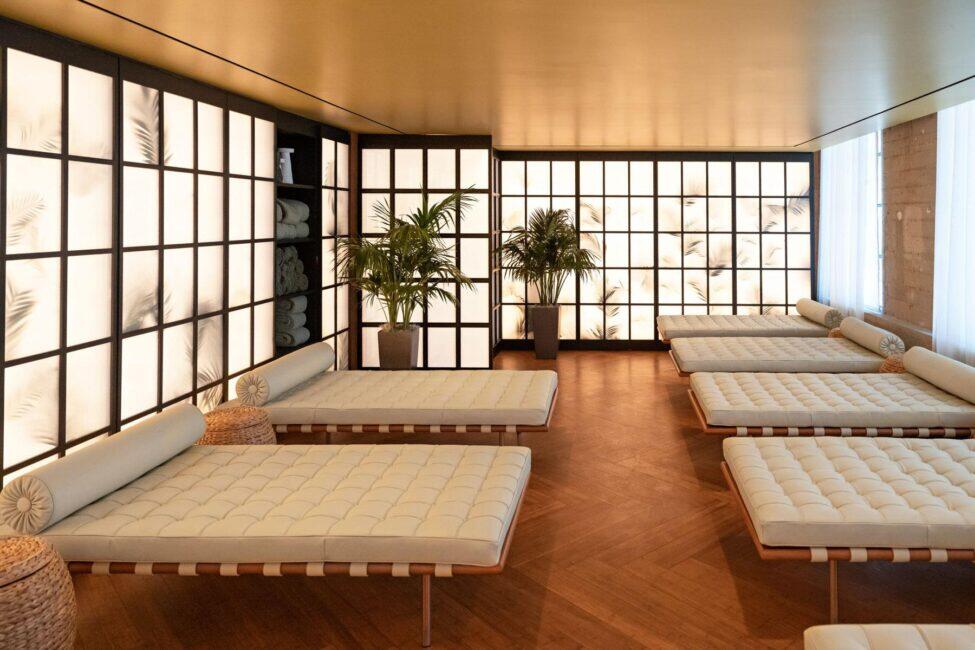
Outside of those of us still unverified (Twitter hear my pleas) I had concerns about issues surrounding diversity. Actual inclusivity includes fostering an environment where Black and Brown people, queer people…essentially anyone not able-bodied, thin, cis, and white feel comfortable. The high price point also felt like a barrier to entry, despite being mind-bogglingly cheaper than both Soho House and Equinox. Add that to the innumerable scandals surrounding race and gender specifically that have plagued membership-only models like Equinox and the now-shuttered The Wing.
But before I was able to jump to conclusions, I decided to actually join Heimat and see for myself.
When you first walk the many halls of Heimat, you can’t help but notice the nooks. And in every nook is a small cluster of friends, maybe new, maybe old, chit-chatting and toting water bottles.
Beyond these numerous nooks (meant to foster and inspire conversation), there’s an elevated, almost hotel-like atmosphere to the space. When you first arrive, you’re greeted in Heimat’s main den, decorated to look like a cozy 1960s living room. On the second floor, its spa-like locker rooms are warmly lit, outfitted with those coveted Dyson hair dryers, sleek marble countertops, and selfie-ready backlit floor-length mirrors.
The workout-centric floors dazzle as well. Bespoke equipment created just for the space makes things feel uniform and clean, with artful design, like stained glass paneling that makes the afternoon light dance across the tiled floors.
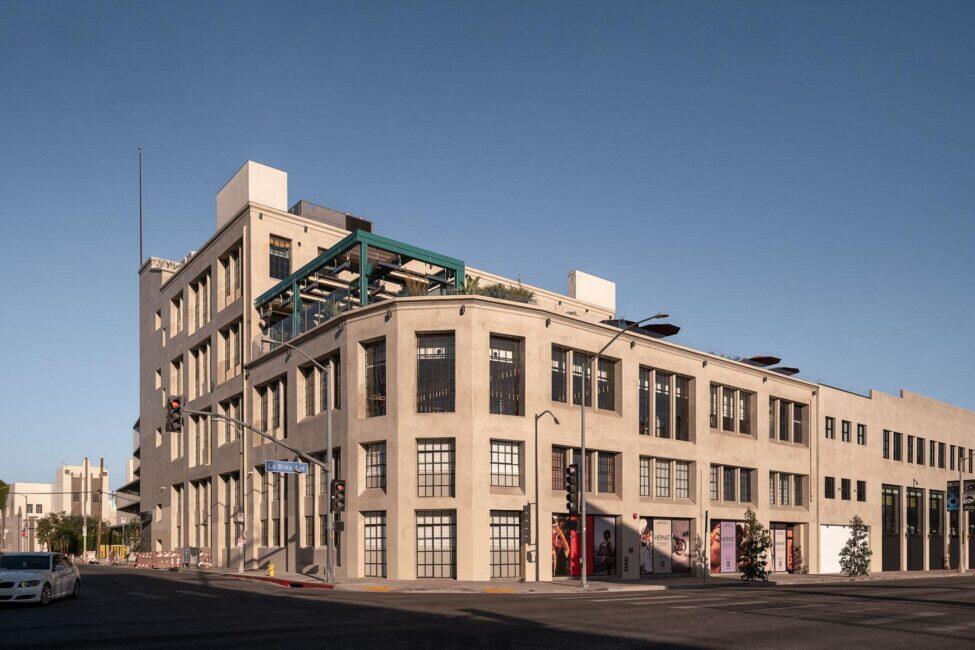
Upstairs in the coworking area, you’ll find cozy lounge sofas and private rooms for meeting space, more nooks, and a small kitchenette. The vibe feels more like a curated English Old Money estate, as if Sherlock himself could pop out of any corner. Phone calls are not allowed in any of the common areas, but, you guessed it, can be taken in nooks or hallways.
Even though there’s an elevator, everyone at Heimat takes the stairs. Sure, step goals for the day might be a motive, but people actually hang out in them to linger and chat, much like a high school stairway.
My conversation with Schoepe ended up veering toward the very L.A. phenomenon of telling someone you should meet up for coffee or a drink…and then (usually intentionally) failing to follow through. In L.A., saying, “we should get drinks!” is just as innocuous and non-committal as saying, “I should really get my teeth cleaned,” or “one day I’ll finally start binging The Sopranos.” You don’t really mean it. But at Heimat, if you meet someone you like, you can actually go get coffee right at Heimat after a workout. You can gossip at the bar at Mother Tongue. Members are built-in ambassadors, harkening the experience of Heimat, “a place for real belonging,” as Schoepe calls it.
The employees are warm and friendly and remember you. Accidental eye contact on the elliptical is met with a smile and not abject horror. You actually really like being at Heimat. The curation, the cozy-yet-polished atmosphere, it’s all deeply intentional and thought through. “You’re not going to convince everybody…but for [those] people dying to do something new, to finally live again…if you create a space for those people…they’ll thrive,” Schoepe says.
It’s not exactly the third place for society at large, but for the Common Angeleno, a creature so skittish, it’s greatest fear is eye contact, it just might be the place our exhausted, socially-awkward brains need.


